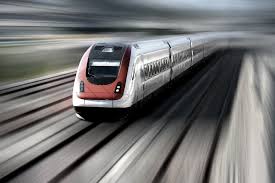 I once took a course in speed-reading. Actually, I also taught it a few times. It was popular in the 70s. The idea was to learn to move your eyes over and down the page in syntactic chunks, to train yourself not to read word-by-word. We used a machine called a ratometer that could be set to move a guide down the page at a set speed. When you finished a section, there was a comprehension test. You had to get a certain score before you could advance to a faster speed. I guess it made a difference. I’m a fast reader. My eyes can fly over the page, or down the column, and get the gist of the material. I do miss things, sometimes important ones, but I can summarize the article pretty well. People who measure various kinds of IQs over time have noted that we as a culture have significantly advanced our visual IQ. We can see quick changes on a screen, we can absorb all manner of spectacle, sights that would have given our grandparents apoplexy.
I once took a course in speed-reading. Actually, I also taught it a few times. It was popular in the 70s. The idea was to learn to move your eyes over and down the page in syntactic chunks, to train yourself not to read word-by-word. We used a machine called a ratometer that could be set to move a guide down the page at a set speed. When you finished a section, there was a comprehension test. You had to get a certain score before you could advance to a faster speed. I guess it made a difference. I’m a fast reader. My eyes can fly over the page, or down the column, and get the gist of the material. I do miss things, sometimes important ones, but I can summarize the article pretty well. People who measure various kinds of IQs over time have noted that we as a culture have significantly advanced our visual IQ. We can see quick changes on a screen, we can absorb all manner of spectacle, sights that would have given our grandparents apoplexy.  What does it mean, to "know"? Among the kinds of knowing, is there one that's "best"? Since the Enlightenment, we've privileged rational fact-gathering, yet recently it's become glaringly evident that we humans have, all along, been driven by irrational, or sub-rational, forces. Rationality tags along to justify, and to clean up the mess. Yet we got here--meaning, we learned to read, to do math, to form governments, to make and enforce laws. You have to respect this kind of knowing. You have to support it. But not pretend it's all there is. Sometimes I feel hopelessly sad. What's that about? Sometimes I wake up to a room filled with rationality, my clothes in their drawers, my IPhone telling me what's on for today. Speed-reading is akin to riding on a train, looking out the window as New Jersey passes by, declaring you have seen New Jersey. Technically. Conversely, I’ve been reading a lot of Virginia Woolf this winter. If you want plot (which I sometimes really do), go read a mystery. If you want to be so deeply imbedded in the non-rational moment that the very texture of the grass is evident on your feet, if you want to feel what it’s like to be inside the character’s mind as she finds herself painstakingly shifting from one perspective to the next, Woolf is your writer.
What does it mean, to "know"? Among the kinds of knowing, is there one that's "best"? Since the Enlightenment, we've privileged rational fact-gathering, yet recently it's become glaringly evident that we humans have, all along, been driven by irrational, or sub-rational, forces. Rationality tags along to justify, and to clean up the mess. Yet we got here--meaning, we learned to read, to do math, to form governments, to make and enforce laws. You have to respect this kind of knowing. You have to support it. But not pretend it's all there is. Sometimes I feel hopelessly sad. What's that about? Sometimes I wake up to a room filled with rationality, my clothes in their drawers, my IPhone telling me what's on for today. Speed-reading is akin to riding on a train, looking out the window as New Jersey passes by, declaring you have seen New Jersey. Technically. Conversely, I’ve been reading a lot of Virginia Woolf this winter. If you want plot (which I sometimes really do), go read a mystery. If you want to be so deeply imbedded in the non-rational moment that the very texture of the grass is evident on your feet, if you want to feel what it’s like to be inside the character’s mind as she finds herself painstakingly shifting from one perspective to the next, Woolf is your writer.  Everything is built of molecular moments. It’s possible to speed the visuals up so fast that they turn into only the (measurable) outlines. But if the intention is to understand, it seems necessary to stand under. Stand under Big Ben long enough and you can see the hands actually move. Poems are not for the impatient, not for the goal-driven. Neither is Virginia Woolf, or Dickens or Thackeray, or Trollope, or any of the luscious nineteenth century Russian novels. Neither is Annie Dillard, or W.G. Sebald. They are for immersion; they don’t sit well with the reader who’s intent on ticking off one more box on an accomplishment list, something to increase one’s self-image, or who wants the story serve a purpose. Well, yes, there is something to get, and a purpose to serve, but it’s not of the nature of passing a reading comprehension test at the end. Or getting to be the smartest. If you can summarize the meaning of a poem, you’ve pretty much lost it. Actually, I think the more we summarize (factualize) and evaluate anything—a movie, a novel, a poem, a person—the more we’ve lost it/him/her.
Everything is built of molecular moments. It’s possible to speed the visuals up so fast that they turn into only the (measurable) outlines. But if the intention is to understand, it seems necessary to stand under. Stand under Big Ben long enough and you can see the hands actually move. Poems are not for the impatient, not for the goal-driven. Neither is Virginia Woolf, or Dickens or Thackeray, or Trollope, or any of the luscious nineteenth century Russian novels. Neither is Annie Dillard, or W.G. Sebald. They are for immersion; they don’t sit well with the reader who’s intent on ticking off one more box on an accomplishment list, something to increase one’s self-image, or who wants the story serve a purpose. Well, yes, there is something to get, and a purpose to serve, but it’s not of the nature of passing a reading comprehension test at the end. Or getting to be the smartest. If you can summarize the meaning of a poem, you’ve pretty much lost it. Actually, I think the more we summarize (factualize) and evaluate anything—a movie, a novel, a poem, a person—the more we’ve lost it/him/her.  Speed is the general case, in this century. But under the speed lie the slow undulations, and under them are the still slower ones. I’m thinking it’s not only a shame to miss the slower ones, but missing them leads to inaccurate interpretations of the faster ones. We really screw up, I think, when we believe our quick-glance prejudices. Prejudices are, after all, only the sensational book jacket, not the story itself.
Speed is the general case, in this century. But under the speed lie the slow undulations, and under them are the still slower ones. I’m thinking it’s not only a shame to miss the slower ones, but missing them leads to inaccurate interpretations of the faster ones. We really screw up, I think, when we believe our quick-glance prejudices. Prejudices are, after all, only the sensational book jacket, not the story itself.
My Wobbly Bicycle, 168
in Archive
